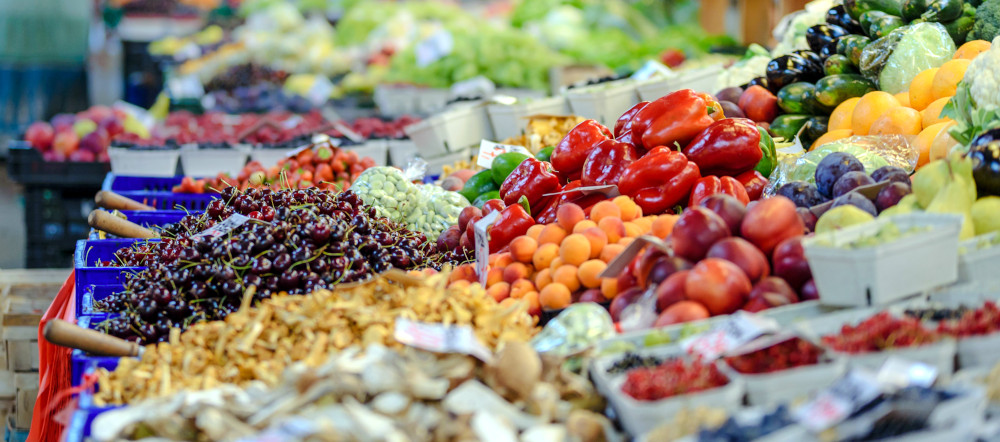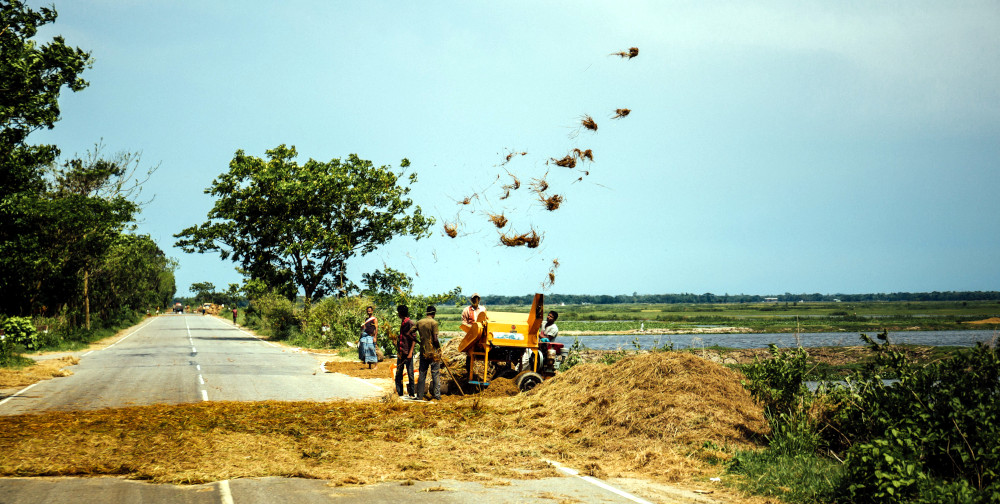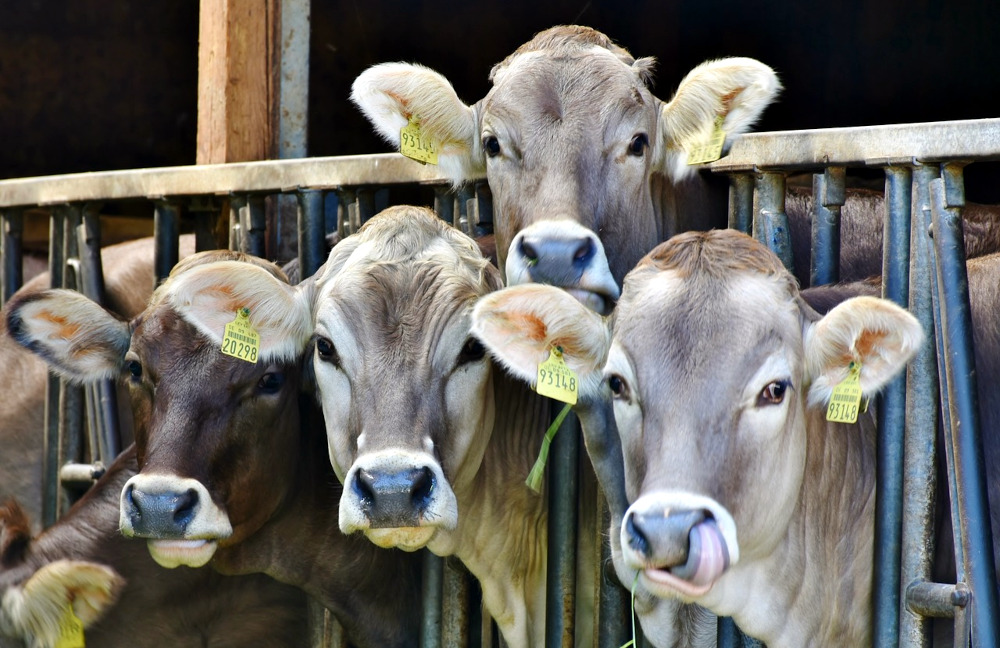US Food Waste Pact engages retailers, producers to collaborate to reduce food waste
 Image credit: Photomix
Image credit: Photomix
On Monday at COP28, nonprofit partners ReFED and
World Wildlife Fund (WWF) announced the
formation of the US Food Waste Pact — a
national, voluntary agreement enabling pre-competitive collaboration and
data-driven action to reach national and international food-waste reduction
targets, including United Nations Sustainable Development Goal
12.3. The US Food Waste Pact is designed
to go beyond commitment-setting to drive meaningful reductions in food waste, as
well as serve as a connective fabric to support other national and regional
food-waste efforts across the country.
In the US, 38 percent of all food goes unsold or uneaten — a $444 billion
opportunity for the nation, including $250 billion for food businesses alone.
Food waste is contributing 6 percent to our national greenhouse gas emissions —
mostly in
methane
— and consuming more than 20 percent of our nation's freshwater supply; and one
in eight US consumers faces food insecurity. The US Food Waste Pact will deliver
on the urgent need for a national strategy and partnership to accelerate
food-waste reduction, which has been identified as a top solution to avoiding
catastrophic climate
change.
Launched in 2019, the Pacific Coast Food Waste
Commitment (PCFWC) has
been a model for this pre-competitive, collaborative approach to driving action
in the US. From the outset, leaders of the PCFWC intended to build and prove a
model that could scale. Five years later, formation of the US Food Waste Pact
builds on that vision and currently includes participation by multiple PCFWC
business signatories and other national players — including Ahold Delhaize
USA, ALDI,
Aramark, Bob’s Red
Mill, Compass Group
USA, Del Monte Fresh Produce
Company, Lamb Weston,
Inc., Raley’s,
Sodexo USA, Walmart,
Inc., and Whole Foods
Market — with additional businesses
encouraged to join.
With
WRAP serving as an advisor, ReFED and WWF designed the US Food Waste Pact around the global framework of “Target,
Measure,
Act.”
Signatories will agree to work together alongside industry peers toward a 50
percent reduction in food waste; measure and report food-waste data to the Pact
annually; and participate in working groups and pilot projects to test,
implement and scale cost-effective and high-impact solutions.
“The US Food Waste Pact is all about measuring and seeing action to reduce food
loss and waste,” said Pete Pearson,
Global Initiative Lead of Food Circularity at WWF. “Through our work with the
Pacific Coast Food Waste Commitment, we’ve seen how businesses respond when we
help them identify the problems within their operations and also offer solutions
and insights to fix them. This new initiative serves as a national platform for
the private sector to show measured progress against their waste reduction
goals.”
Leveraging best-in-class data methodologies, tools and resources, the US Food
Waste Pact will provide signatories with detailed, custom waste analytics;
industry benchmarking and solution roadmaps, as well as human and financial
resources to support pilot projects among signatory participants. The Pact will
anonymize and aggregate the signatories’ reported waste data before publicly
sharing the results in an annual report, providing unique and valuable, detailed
insights into waste trends year upon year to benefit the entire industry.
“This level of industry collaboration to reduce food waste is unprecedented and
exactly what is needed to successfully address such a systems-level problem.”
said Dana Gunders, Executive
Director of ReFED. “The data component of the Pact — from within their own
operations and from across their sector — is critical to enabling our business
partners to identify where to focus their resources, while also benchmarking
their efforts against the rest of the industry. Those types of insights aren’t
available to businesses right now.”
The US Food Waste Pact provides a unique opportunity for food businesses to work collaboratively to drive
food-waste reduction, which will create a range of benefits, including:
-
Return on Investment — Food-waste reduction programs around the world
have shown proven, significant ROI for all types of food
businesses;
-
Data insights — Aggregated, anonymous reporting from all signatories
enables businesses to measure their progress, identify priority areas of
action, and benchmark against competitors; and
-
Industry collaboration — Pre-competitive working groups open to all
signatories offer opportunities for businesses to learn from each other’s
successes; discuss solutions to challenges; and engage with government
leaders through special policy roundtable discussions.
Beyond the US Food Waste Pact’s commitment to accelerating action, it also
aims to provide the missing connection between other national and regional
programs for businesses to reduce food loss and waste — including the Food
Waste Reduction Alliance and the USDA
and EPA’s US Food Loss and Waste 2030
Champions
initiative, as well as global efforts such as World Resources Institute
(WRI)’s 10x20x30
initiative.
The US Food Waste Pact will complement and support these existing efforts by
providing direct support for businesses who have committed to take action. In
addition to the PCFWC, the US Food Waste Pact has also been inspired by similar
global initiatives managed by WRAP — including the Courtauld Commitment in
the UK and Pacto Por La Comida in Mexico, which have demonstrated the
benefits of businesses working together to achieve waste-elimination goals.
“As a partner of the Pacific Coast Food Waste Commitment, WRAP together with
ReFED and WWF share an ambition to scale-up action addressing food loss and
waste in the US, and contribute significantly to the UN’s Sustainable
Development Goal 12.3. WRAP is delighted to continue this strong association as
an advisor for the US Food Waste Pact and contribute to the success of this
initiative.” said David
Rogers, International
Director of WRAP. “Over the last 20 years, we have worked with partners from
Mexico to Australia via South Africa and Indonesia to establish
nation-specific programs tackling food loss and waste — from farm to fork. The
US Food Waste Pact is a crucial addition to this international network, enabling
national delivery in the US to complement that of other nations and delivery
globally on a key environmental issue facing every nation on Earth.”
ReFED: $300M in ready-to-fund investments can transform failing food systems; deliver major climate, economic gains
 Image credit: Kelly
Image credit: Kelly
Also on Monday, ReFED unveiled Reducing Food Loss and Waste – A Roadmap for
Philanthropy — which
provides governments, philanthropy and the private sector guidance on chopping
emissions from food waste while improving food security, nutrition, incomes and
the environment.
Just five geographies are responsible for more than half of global food waste
and its resulting climate-changing emissions: China, the European Union,
India, the United States, and Brazil. Food loss (on farms and in supply
chains) and waste (at the
retail
and
consumer
levels) deprives farmers of income, costs consumers and producers money, and
exacerbates biodiversity loss — all while 700 million people suffer from hunger
worldwide. The Roadmap for Philanthropy highlights proven solutions ready to
catalyze progress globally and showcases seven pivotal countries — Brazil,
China, Indonesia, Kenya, Mexico, South Africa and the United States —
that are poised to make the most progress on reducing food loss and waste.
Nearly 50 expert organizations contributed to this new roadmap, which was led by
the Food and Land Use Coalition
(FOLU), ReFED, WRAP and WRI; and funded by the Bezos Earth
Fund, the Betsy and Jesse Fink Family
Foundation, the IKEA
Foundation, and the Robertson
Foundation.
"Food waste is a solvable problem, and philanthropic funding is critical to
developing and scaling solutions,” Gunders
said.
“This new roadmap shows where funding can have the greatest impact in the
immediate future and outlines a clear path to achieve measurable progress. It is
an essential contribution to reaching our global food-waste reduction goals."
Bezos Earth Fund commits $57M to support global food-systems transformation
 Image credit: Rita E
Image credit: Rita E
Last week in Dubai, as 134 countries signed a
declaration
to better integrate food into their climate goals, the Bezos Earth Fund
announced the allocation of $57 million in food-related grants to tackle the
dual threats of climate change and biodiversity loss — as part of its $1
billion commitment to tackling the food system's impact on climate and nature.
It will allocate the remaining $850 million by 2030 to support ambitious
implementation of the emerging global agenda on food systems and climate.
Food systems — the way we produce, process, package, ship, eat, and waste —
contribute one third of global greenhouse gas emissions, yet they are
underfunded and too often overlooked in climate discussions.
"We cannot afford for food to be on the sidelines of climate and nature
conversations any longer. Food is a victim, problem and solution in the climate
and nature crises; and we must raise its profile in the discussion," said
Dr. Andrew Steer, President and
CEO of the Bezos Earth Fund. "We applaud countries raising their ambitions,
prioritizing food in their climate goals — and urge them to go bigger and
bolder. We need to do things differently to feed a growing global population
without degrading the planet and now is the moment for action."
The Bezos Earth Fund and 16+ other philanthropies also signed and announced a
new philanthropic statement of action, committed to invest, advocate and partner
to tackle food security and sustainability in alignment with the Paris Agreement
goals.
The $57 million will support a range of innovations, including:
- Making livestock more sustainable ($30M) — Together with the Global Methane Hub's newly launched Enteric Methane R+D
Accelerator,
the Earth Fund is investing in a range of innovations to reduce methane
emissions from livestock by as much as 30 percent in the next 10-15 years.
Additional grants provide funding to identify and develop low-methane feed,
low-methane cattle breeding, and wearable sensors to measure cow methane
emissions.
- Protecting the Brazilian Amazon by limiting deforestation ($16.3M) — Grants are supporting groundbreaking plans from the Brazilian State of Pará
to reach zero-illegal deforestation within the next three years by creating the
world's largest cattle-traceability
system.
Together with The Nature Conservancy, IMAFLORA, Earth Innovation
Institute, Aliança da Terra and other partners, the initiative aims to
trace meat, dairy and
leather
to eliminate deforestation from value chains, and bring about forest-positive
incentives for cattle farmers and ranchers.
- Promoting climate-smart agricultural practices ($8.3M) — In partnership with the Earth Rover Program, the Bezos Earth Fund is
building knowledge of soil ecosystems through seismology to assess the potential
of soil to sequester significant amounts of carbon dioxide. With the Platform
for Agriculture and Climate Transformation (PACT),
the Earth Fund is helping ensure that US federal funding to reduce farmland
methane emissions reaches farmers and ranchers that adopt climate-friendly
agricultural practices.
- Catalyzing food-systems transformation ($2.6M) — In partnership with FOLU, the Earth Fund is supporting efforts to tackle
food loss and waste — establishing an alliance of countries working to transform
food systems. Additionally, working with the think-and-do-tank
Clim-Eat, we are identifying and nurturing bold
technological innovations in food systems and convening key actors to accelerate
their development and deployment.
"At COP28, it's time to turn pledges and commitments into action and funding for
innovative food solutions and food systems transformation," said Dr. Andy
Jarvis, Director of Future
of Food at the Bezos Earth Fund. "Food isn't just having a moment in COP28 —
it's the start of real momentum; and through the grants we are announcing, we
will deliver that."
Get the latest insights, trends, and innovations to help position yourself at the forefront of sustainable business leadership—delivered straight to your inbox.
Sustainable Brands Staff
Published Dec 5, 2023 3pm EST / 12pm PST / 8pm GMT / 9pm CET